<< Previous | Displaying results 326-350 of 489 for "warsaw" | Next >>
When German forces invaded Poland in September 1939, Ruth's father fled to eastern Poland. Upon the Soviet occupation of eastern Poland, he fled to Lithuania. Ruth left Warsaw with two friends to find her father and later joined him in Vilna. After Soviet forces occupied Lithuania, Ruth and her father obtained transit visas for Japan, but only Ruth obtained a Soviet exit visa. Her father insisted she leave and not wait for him. Ruth traveled by the Trans-Siberian Railroad across the Soviet Union to…
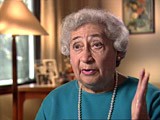
Felix was born to an assimilated Jewish family in Lublin, Poland. His father was a locksmith and his mother was a singer. Following the German invasion of Poland on September 1, 1939, Felix fled east to Rovno and then to Soviet-occupied Lvov, where he was accepted at a medical school. After the German invasion of the Soviet Union in June 1941, Felix was taken to a labor camp. He escaped and returned to Lublin, and found that his family had been forced into the ghetto established there. After the…
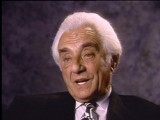
Felix was born to an assimilated Jewish family in Lublin, Poland. His father was a locksmith and his mother was a singer. Following the German invasion of Poland on September 1, 1939, Felix fled east to Rovno and then to Soviet-occupied Lvov, where he was accepted at a medical school. After the German invasion of the Soviet Union in June 1941, Felix was taken to a labor camp. He escaped and returned to Lublin, and found that his family had been forced into the ghetto established there. After the…
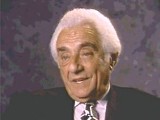
Felix was born to an assimilated Jewish family in Lublin, Poland. His father was a locksmith and his mother was a singer. Following the German invasion of Poland on September 1, 1939, Felix fled east to Rovno and then to Soviet-occupied Lvov, where he was accepted at a medical school. After the German invasion of the Soviet Union in June 1941, Felix was taken to a labor camp. He escaped and returned to Lublin, and found that his family had been forced into the ghetto established there. After the…
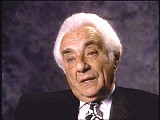
Mieczyslaw and his family were not Jewish. When Germany invaded Poland, Mieczyslaw was working for an organization formed for self-defense against German bombings. Later, he worked for the Polish underground group ZWZ (Zwiazek Walki Zbrojnej; Union for Armed Struggle), which became the AK (Armia Krajowa; Home Army). In 1943, he was conscripted for forced labor at a BMW plant in Warsaw. He escaped, and participated in the Warsaw Polish uprising in August 1944. After the uprising, he left Warsaw and went…
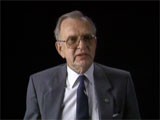
Explore images and film by US filmmaker and photographer Julien Bryan, including documentation of Warsaw following the German invasion of Poland.
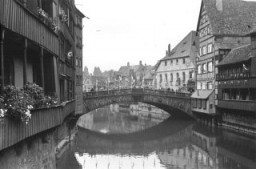
The Germans invaded the Soviet Union in June 1941 (Operation "Barbarossa"). German forces occupied Vitebsk in the northeastern region of Belorussia on July 11. Soviet forces seized the initiative from the Germans after the battle of Stalingrad in late 1942 and early 1943. The Soviet army liberated Vitebsk on June 26, 1944, during their summer 1944 offensive. This footage shows military units involved in the fighting and German soldiers captured during the campaign. By the end of the summer, the Soviet…
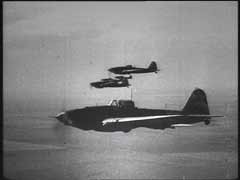
Read the Jewish Partisan Educational Foundation's short biography of Jeff Gradow.
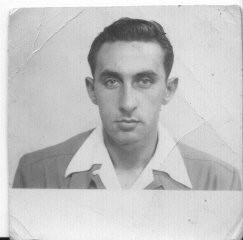
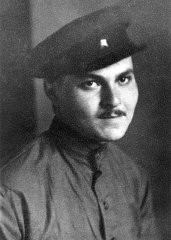
Polish women from the Pawiak and Mokotow prisons in nearby Warsaw are led into the Palmiry forest for execution by SS personnel.The original caption reads: "Their Nazi executioners leading a group of Polish women, according to the information attached to this picture which was just received through Polish sources. Hundreds of cvilians, men, women and even young children are said to be systematically 'eliminated' under the Nazi scheme of things in war-torn Poland". Palmiry Forest, Poland,…
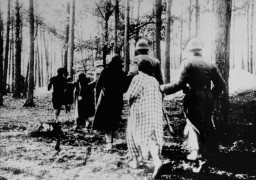
January 16, 1942. On this date, German authorities began the deportations of Jews and Roma from the Lodz ghetto to the Chelmno killing center.
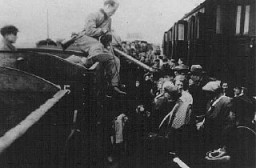
Maria was born to Roman Catholic parents in the industrial town of Piotrkow Trybunalski in central Poland. Her father and mother were school teachers. Maria attended grade school and secondary school in Piotrkow. She and her older sister, Danuta, became friends with two Jewish girls, Sabina and Helena Szwarc. Although their houses were more than a mile apart, the girls often played together. 1933-39: The Germans invaded Poland on September 1, 1939, and occupied Piotrkow four days later. Most schooling for…
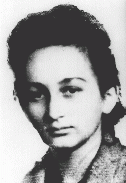
Elzbieta grew up in Iwonicz, a resort town in southwestern Poland noted for its mineral water. Her father, Edmund, was a respected physician and Helena, her mother, had studied pharmacology. At home, they spoke Polish and were among the few Jewish families who lived in Iwonicz. 1933–39: When German troops invaded Poland on September 1, 1939, Elzbieta's father was drafted into the Polish army. Seventeen days later, the Soviet army drove in from the east and Edmund was captured. He was transported to a…
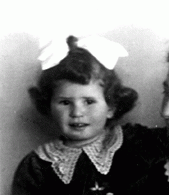
Welwel lived with his wife, Feiga, and their three children in the small, predominantly Jewish town of Kaluszyn, which was 35 miles east of Warsaw. The Kisielnickis were religious and spoke Yiddish in their home. Welwel was a merchant and often traveled, by horse and wagon, to Warsaw on business. 1933-39: The Kisielnicki family's hopes that the war wouldn't reach Kaluszyn have been shattered. Last week, a German plane flew over their town and dropped a bomb on people waiting in line outside a bakery.…
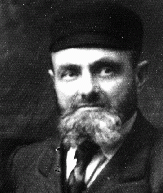
The second of three children, Rojske was born to Jewish parents living 35 miles east of Warsaw in the small predominantly Jewish town of Kaluszyn. Rojske's mother was a housewife and her father was a merchant who often traveled, by horse and wagon, to Warsaw on business. When Rojske was in her twenties, she married Welwel Sadowsky, a fruit dealer. 1933-39: After war broke out last week, German forces fought Polish troops in a battle right here in Kaluszyn. Half the town has been flattened by shelling, and…
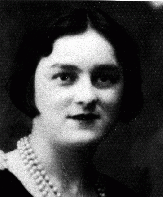
Gitla was the second-youngest of four girls born to observant Jewish parents. They made their home in Sandomierz, a predominantly Catholic town on the Vistula River. Her father owned a small bookstore across from the town hall, selling school texts and novels. Gitla attended public school before enrolling in a Catholic girls' high school. In the winter, Gitla enjoyed skating on the Vistula. 1933-39: In 1937 Gitla moved to Katowice, a large town on the Polish-German border. There, she enrolled in a…
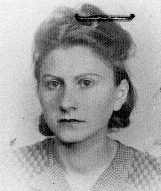
Lonia had three sisters and one brother. Her parents owned a cotton factory in the town of Wegrow. The Goldmans were a religious family, strictly observing the Sabbath, the Jewish holidays and the dietary laws. 1933-39: After studying all day at public school, Lonia attended a religious school for girls called Beis Yakov where she studied Hebrew, the Bible and Jewish history. Later, when she was in high school, a private tutor came to the house to teach her Hebrew. Lonia's favorite hobby was knitting.…
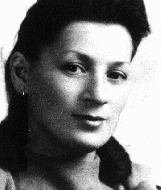
Feiga lived with her husband, Welwel, and their three children in the small, predominantly Jewish town of Kaluszyn, which was 35 miles east of Warsaw. The Kisielnickis were religious and spoke Yiddish in their home. Feiga was a housewife and her husband was a merchant who often traveled, by horse and wagon, to Warsaw on business. 1933-39: Germany recently invaded Poland, and several days ago, German forces fought Polish troops in a battle right here in Kaluszyn. Half the town, including Feiga's house, has…
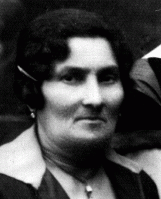
Herman was the fourth of eight children born to a religious Jewish family in the small town of Sirma, located near the city of Sevlus. The Kleins had a small plot of land, which they farmed, and they also ran a shoe shop. At age four Herman began attending religious school. When he started public elementary school, he continued his religious lessons in the afternoons. 1933-39: In March 1939, the region of Czechoslovakia in which Herman lived was annexed to Hungary. His teacher at school was replaced by a…
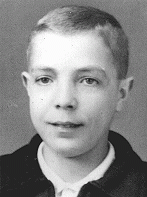
Klara grew up in Rzeszow, a Polish city with a population of approximately 30,000. The Mintzbergs were observant Jews. Klara's mother supported the family by running their fabric store. Her father was an ardent Zionist. He dreamed of immigrating to Palestine and encouraged Klara to join a Zionist youth group. 1933-39: After finishing secondary school, Klara was elected to serve on the board of directors of Poland's Ha-No'ar Ha-Ziyoni youth movement; she was the only woman on the board. She studied…
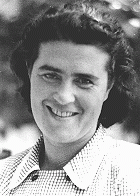
Raizel lived with her husband, Mojsze, and their three children in the small, predominantly Jewish town of Kaluszyn, which was 35 miles east of Warsaw. By the 1930s, Mojsze owned a grocery store, a restaurant, and a gas station, all of which were located together on the heavily traveled main road. The family lived in rooms in the same building as their business. 1933-39: Every day Raizel prepares the roast goose served in the family's restaurant. They have a bustling business, as many truck drivers stop…
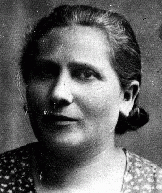
The oldest of three children, Abram was born to Jewish parents in the small, predominantly Jewish town of Kaluszyn, 35 miles east of Warsaw. Abram's father owned a wholesale grocery store, a restaurant and a gas station, all of which were located on the heavily traveled main road. Abram went to public elementary school and also received religious instruction. 1933-39: Abram was 21 when the Germans invaded Poland. Abram, his father, and his brother Majlech fled eastward towards the Soviet Union because…
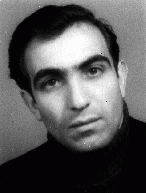
Frederick was the oldest of two sons born to Polish immigrants in Syracuse, New York. In 1922 Frederick's father, who was a musician, moved the family back to Poland where they settled in Poznan. There Frederick started public school and was accepted to the boys section of the prestigious Poznan Cathedral Choir. 1933-39: In 1933, at age 17, Frederick graduated from secondary school and enrolled in medical school at the university at Poznan. He sang with the choir for the last time the day he graduated…
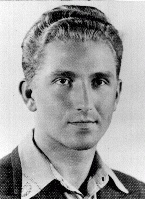
Jocheved, or Jadza as she was called at home, was born in the industrial city of Lodz, Poland's second-largest city. Before the war, one-third of Lodz's inhabitants were Jewish. The Kuzdas kept a traditional Jewish home and placed importance on their children's education. Jocheved had two older sisters, Sarah and Regina. 1933-39: Jocheved was 9 when the war broke out in September 1939. Instead of starting school, she stayed at home listening to the bombs exploding. Her father and sister tried to get to…
"We Will Never Die" was a 1943 musical stage performance that raised awareness among Americans about the murder of European Jews. Learn more.
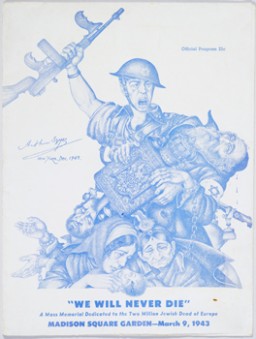
We would like to thank Crown Family Philanthropies, Abe and Ida Cooper Foundation, the Claims Conference, EVZ, and BMF for supporting the ongoing work to create content and resources for the Holocaust Encyclopedia. View the list of donor acknowledgement.